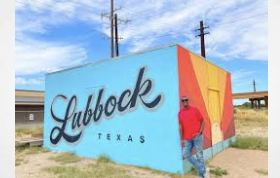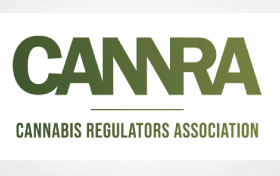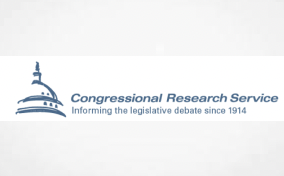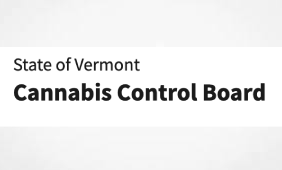Frankfurt Kurnit Klein & Selz PC
Source Lexology
Author

Dorian Thomas
https://fkks.com/attorneys/dorian-thomas
Microdosing. “Magic” mushroom dinners. Ayahuasca retreats. Today, psychedelic products and related therapeutic services are gaining in popularity and making their way into the “mainstream.” As they enter further into the public discourse, you may have seen advertisements for psychedelic products and related therapeutic services. Or perhaps you work for a company or advertising agency that is creating or placing ads to sell psychedelic products or related therapeutic services. Or perhaps you work for a media platform that is considering hosting such ads. If you are engaged in creating or publishing ads for such products and services, there are several legal implications for you to consider.
As discussed in greater detail below, here’s the main takeaway:
- On the federal level, psychedelics, even in small amounts, remain illegal. In general, it is not legal to advertise illegal products.
- On the state level, particularly in Oregon and in Colorado (as of 2024), advertising for certain psychedelic products and related therapeutic services may be legal under state law, provided the ads adhere to the applicable state’s guidelines. Even if ads for psychedelic products and related therapeutic services are legal within a particular state, they are still illegal under federal law.
- In addition to psychedelic-specific laws, ads should adhere to general advertising laws and guidelines. For example, ads should not be false or otherwise mislead consumers.
- The media in which the ads appear may have their own advertising guidelines to which the ads must adhere.
What are psychedelics and are they legal?
Psychedelics are generally understood as a class of psychoactive substances that may produce changes in perception, mood, and the cognitive process. Examples include psilocybin (mushrooms), LSD, DMT, mescaline, and peyote. Whether psychedelics are legal depends on the applicable law that applies.
Federal Level
Most psychedelic substances are designated as Schedule 1 substances under the federal Controlled Substances Act (the “CSA”). Under the CSA, it is illegal to possess, obtain, or produce Schedule 1 substances in any amount. This means that, on the federal level, psychedelics, even microdosing, remains illegal (although the penalties for possessing smaller quantities may be lower than the penalties for possessing greater quantities).
State Level
So far, two states have not only decriminalized the possession and consumption of psychedelics, but have also implemented regulated regimes through which psychedelic therapies may be offered and during which psychedelic substances may be consumed. In January 2023, Oregon became the first state to offer psychedelic therapeutic services through licensed therapy centers. (Oregon limits the use of psychedelics to psilocybin and psilocybin-based products only.) In 2024, Colorado will become the second state to offer psychedelic therapeutic services through licensed therapy centers. (Colorado limits the use of psychedelics to psilocybin through 2026, after which Colorado may adopt rules to allow for the use of other psychedelics, such as DMT and MDMA.)
Psychedelics and their advertising remain illegal under federal law, however. Under the Supremacy Clause of the United States Constitution, state law that conflicts with federal law is generally preempted by federal law (meaning the federal law would control). The CSA, which designates psychedelics as illegal substances, arguably conflicts with Oregon and Colorado’s regulations that allow for the cultivation, distribution, use and promotion of certain psychedelics. Accordingly, if the federal government were to seek to enforce federal law in Oregon or Colorado, the federal government would likely be successful in doing so.
The federal government has not officially indicated whether it will enforce federal law concerning the cultivation, distribution, and consumption of psychedelics within Oregon and Colorado (or any other state that may allow for the distribution of psychedelics in the future). However, under Oregon’s Psilocybin Regulation, the Oregon Psilocybin Advisory Board is obligated to attempt to meet with the United States Attorney for the District of Oregon to “discuss” Oregon’s Psilocybin Regulation and “potential federal enforcement policies regarding psilocybin in Oregon….” During its May 5th, 2023 meeting the Oregon Psilocybin Advisory Board acknowledged that it had drafted and sent a letter to the United States Attorney for the District of Oregon in connection with the Oregon Psilocybin Regulation, which letter may elicit a response from the federal government about how the federal law enforcement officials may approach enforcing federal law in Oregon.
Until any such guidance is issued by the federal government, the distribution of psychedelic products and related therapeutic services should still be considered illegal under federal law, even if legal under applicable state law, and it should be presumed that the federal government is prepared to enforce federal law in all 50 states.
Is it possible that federal officials may indicate that they won’t enforce federal law in this area? Potentially. After several states legalized the possession and sale of cannabis several years ago, the United States Department of Justice issued the Cole Memorandum to all U.S. Attorneys, stating that the Justice Department would not enforce federal law applicable to cannabis possession and sale in states that had legalized cannabis and had implemented strong and effective enforcement systems to control the cultivation, distribution, sale and possession of cannabis. The provisions of the Cole Memorandum have since been enacted into federal law under the Sensible Enforcement of Cannabis Act. Notably, the Sensible Enforcement of Cannabis Act is limited to cannabis only.
Local Level
At least ten cities in California, Massachusetts, Michigan, and Washington have decriminalized or deprioritized the possession and consumption of certain psychedelics. While decriminalization or deprioritization does not mean that the commercial distribution and advertisement of psychedelics is legal within these cities, it may reflect a trend toward greater cultural acceptance.
So, can I advertise or accept advertisements for psychedelics?
On the federal level, advertising for psychedelic products and therapeutic services remains illegal, regardless of the state in which the advertisement appears. Purely from a state-law perspective, however, advertising for psychedelic products and services may be legal under state law in Oregon and Colorado so long as the advertisements are consistent with the applicable state’s regulations and guidelines.
Federal Level
In addition to the prohibitions under the CSA discuss above, psychedelic products may also fall under the jurisdiction of the U.S. Food and Drug Administration (the “FDA”), which regulates the advertising of food, drugs and related services. The FDA permits advertisements for FDA-approved drugs only and those advertisements must comply with certain FDA guidelines. Most psychedelic products and related therapeutic services have not obtained FDA approval, and therefore advertisements for those products and services are not sanctioned by the FDA.
It’s nearly impossible to discuss advertising on the federal level without also mentioning the Federal Trade Commission (the “FTC”). The FTC’s mission is to protect the public from deceptive or unfair business practices. In fulfilling this mission, the FTC regulates the advertisements of products and services made available to the public, by prohibiting deceptive or unfair advertising practices. Accordingly, advertisers of psychedelic products and therapeutic services should also consider whether and how the laws and regulations enforced by FTC apply as well.
The penalties for violating federal law can be severe. Penalties could include, for example, jail time, fines, and orders prohibiting violators from engaging in certain practices in the future. Criminal penalties under federal law for the distribution of Schedule 1 substances depends on the particular substance distributed, the amount distributed, whether the distribution lead to injury or death, and whether the offense is the first criminal offense, but it’s possible that criminal penalties could exceed 20 years imprisonment and fines up to $20,000,000 (for individuals, but such fines may be greater for corporate entities).
Oregon and Colorado
In Oregon in 2023, and Colorado in 2024, it may be legal (purely from a state-law perspective) to advertise psychedelic therapeutic services. Oregon has enacted specific rules governing advertising for licensed psychedelic therapeutic service centers within the state. Oregon’s advertising rules provide:
- Licensees cannot make statements that are deceptive, false or misleading;
- Licensees cannot claim that psilocybin products have curative effects or make other health claims that are not supported by the totality of publicly available scientific evidence;
- Licensees cannot target individuals under the age of 21 and cannot place billboards or other advertisements where 30% or more of the audience may be under 21; and
- Licensees cannot otherwise encourage activity that is illegal under state law.
Colorado has yet to enact its rules governing advertisement of psychedelic therapeutic services. The distribution and sale of psychedelics remains illegal under the laws of other states.
Will media run advertisements for psychedelics?
The advertising of psychedelic products and therapeutic services also needs to adhere to the guidelines of the media in which the advertisements are placed. Media organizations have wide latitude – subject to complying with applicable law – to accept or reject any advertising on their platforms.
Most types of media have advertising guidelines. For example, broadcast networks, newspapers, magazines, out of home advertising companies, and social media platforms each have their own advertising guidelines. Even the New York Metropolitan Transportation Authority (“MTA”) has advertising guidelines, which prohibit the advertising of hallucinogenic mushrooms or hallucinogenic mushroom-related products on the New York City subway.
Will social media platforms be open to considering the advertising of psychedelics? TikTok prohibits the promotion, sale, solicitation of, or facilitation of access to illegal, controlled or prescription drugs. Meta (through Instagram and Facebook) prohibits the promotion of illegal products or services, as well as the promotion of illicit or recreational drugs, or other unsafe substances. Twitter prohibits the promotion of illegal and recreational drugs. Snap prohibits the promotion of illegal drug use and the recreational use of pharmaceuticals. However, Snap does allow for the promotion of ads for cannabis and some CBD products, where legal and with appropriate targeting. So, at this moment, it does not appear that the major social media platforms are open to accepting advertising for psychedelics.
While the major social media platforms prohibit the advertising of psychedelic products and related therapeutic services, it may still be possible to refer to psychedelics in certain types of advertising. For example, Meta (through Instagram and Facebook) allows advertisements to refer to prohibited drugs, products, or supplements for the purposes of political advocacy, news, and awareness campaigns as long as they don’t promote the direct sale or consumption of those substances. Accordingly, it may be possible on some platforms to advertise for the legalization of psychedelic products and services, so long as such ads do not directly promote the sale or consumption of psychedelic products and services.
So, what’s next?
There is a great deal of uncertainty surrounding psychedelics and how the regulatory environment related to the advertising of psychedelics will evolve. At this moment we are mostly left with big questions.
- Will some advertisers continue to advertise psychedelic products and related therapeutic services in certain states, notwithstanding the current status of federal law?
- Will advertising of psychedelics expand and gain greater industry (and government) acceptance?
- Will more states implement legal regimes allowing for the distribution, consumption and advertising of psychedelic products and related therapies?
- What will the federal government’s approach be? Will it take enforcement action? Will the federal government issue guidance as to how it intends to approach enforcement of federal law concerning psychedelics, particularly in states where the distribution, consumption, and advertising thereof has been made legal under state law? Or will changes to the law be considered?

















